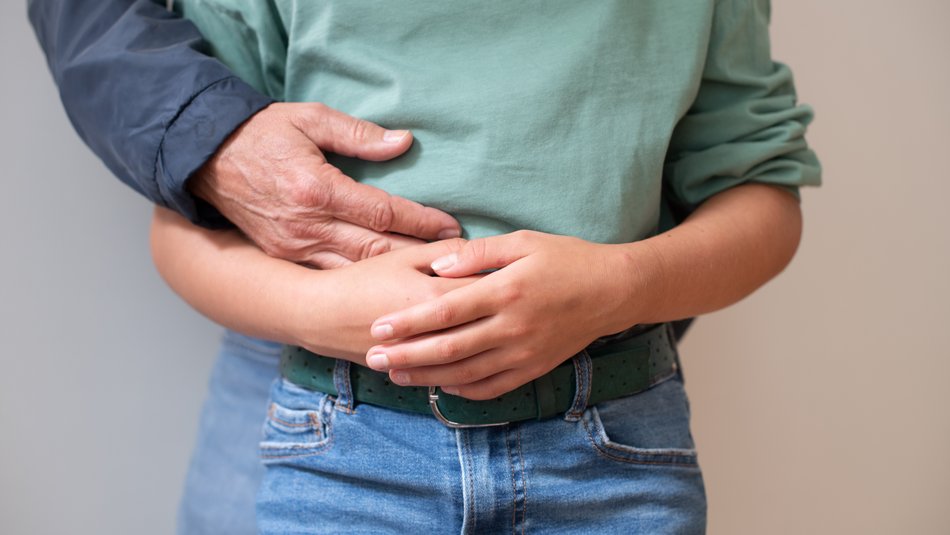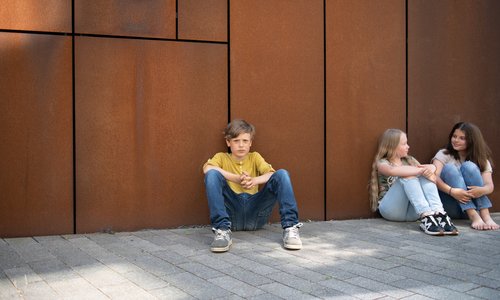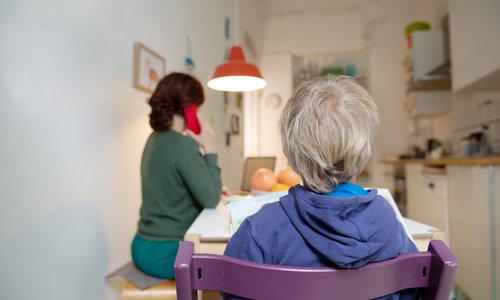
Anyone who forces children to partake in sexual acts, demands that they perform them or makes them watch such acts is liable to prosecution, because children, i.e. minors under the age of 14, come under special legal protection. You will learn which acts are punishable, the challenges that criminal proceedings for sexual abuse entail and just how UBSKM is working to achieve child-friendly justice here in the following.
Which acts are punishable as sexual abuse?
Any sexual act inflicted on a child is punishable as sexual abuse - regardless of whether they are carried out with or without physical contact. This also applies if the child supposedly consents to or even initiates a sexual act. The background here is that children have not yet developed their sexual self-determination and this means that they are not capable of consenting to sexual acts.
In the case of adolescents (minors older than 14 years), the legislator assumes that they can and should develop sexually and try things out. However, in order to protect them effectively any criminal liability covering these acts will depend on whether a so-called custodial relationship exists between them and the other person, e.g. with regard to parents or teachers, or whether the adolescents really acted voluntarily and self-determinedly. In order to justify the different stages of development, the law differentiates between youngsters under 16 and adolescents under 18 when setting the so-called age of consent.
Dauer: 2:27
When is sexual self-determination present?
A person capable of sexual self-determination is someone who, based on their mental and psychological development, is able to recognise the meaning and possible consequences of a sexual act and act accordingly. Whereas this development is not yet complete in children as it depends on their actual age, in the case of young adolescents between 14 and 16 years of age it will also depend on the specific circumstances (e.g. age difference, type of sexual act, type of relationship) that will have to be examined in detail during criminal proceedings.
What are abuse images and when is their possession and distribution punishable by law?
Abuse images show sexual acts involving or carried out in front of children. This also includes images of completely or partially unclothed children in unnatural and sexually-accentuated postures or those of children's genitals. Producing, possessing, acquiring and distributing such images and videos is always punishable - regardless of whether the material is in printed or digital form. An exception is made for so-called "chastity tests": in this case the police investigators may, under very strict conditions, send artificially produced abuse images in order to gain access to illegal networks or forums.
The law also differentiates between children and adolescents when it comes to sexualised images. As a rule, producing or distributing images and videos showing adolescents in the context of sexual acts is punishable by law. An exception can be made here if this content was produced with the adolescent’s consent and is intended solely for personal use.
Why does UBSKM use the term “abuse image”?
UBSKM uses the abuse images term to make it clear that there can be no permitted sexualised images of children, but that every sexual act in front of or inflicted on a child constitutes abuse or sexual violence. It is against this background that UBSKM considers the term "child pornography" used in criminal law to be both imprecise and trivialising.
A harmless image ...?
Images or videos that show children naked but not in a sexualised manner are not considered to be abuse images. However, parents, relatives or friends who have such recordings should be very careful about sending them via messaging services or even uploading them to the internet. The risk of misuse is extremely high. If such recordings are produced as supposedly harmless images only to sell them later on or if they are traded, then this is a punishable offence.
Which challenges arise in a criminal investigation or during the main proceedings?
Providing evidence in criminal proceedings involving a sexual offence is often very difficult. In many cases there is a lack of objective evidence, such as DNA traces or uninvolved witnesses. Whether a conviction or acquittal is reached will often depend only on the testimony given by the survivor. This always places high demands on the quality of the interrogation and the qualifications of the interrogator, especially when a child is involved. Criminal proceedings are often very stressful and, in the worst case, lead to renewed traumatisation for the children or adolescents involved. Due to the central principles of the rule of law in criminal proceedings, e.g. the presumption of innocence, they have to come-to-terms with what happened to them once again and make usable statements about what they suffered.
Because this is so important, the public prosecutor's office or the court sometimes authorises a psychological assessment. These assessments can also lead to criminal proceedings sometimes taking a very long time and it then becomes difficult for the minors involved to understand the objectives and the procedural aspects.
Dauer:
What is meant by child-friendly criminal proceedings and how is UBSKM working towards this?
Based on the UN Convention on the Rights of the Child, all of the actors in child-friendly criminal proceedings are working towards reducing the previously mentioned burdens and involving children and adolescents in an age-appropriate way. UBSKM is particularly committed within the framework of the National Council against Sexual Violence Inflicted on Children and Adolescents to ensuring that survivor-protection measures introduced by the legislature in recent years are implemented across the board in practice. This also includes implementing judicial video interrogations in order to ensure that a statement can be used at an early stage of the proceedings and, if possible, to spare the under-age witnesses from having to testify during the main hearing or providing psychosocial support during the trial, which will strengthen and support the survivors throughout the entire proceedings.
UBSKM, together with the actors from the National Council, are also trying to ensure that the police, the public prosecutor's office and the courts become better qualified and more specialised as well as stronger interdisciplinary networking being implemented. Another important component here is age-appropriate, sensitive and respectful involvement and information for the minors involved. The National Board is developing various action guides to support these projects in practice, e.g. for the duration of the criminal proceedings or for establishing specialised courts and public prosecutor’s offices.






